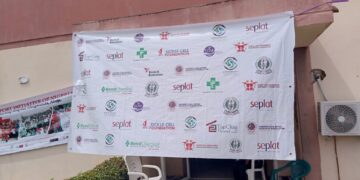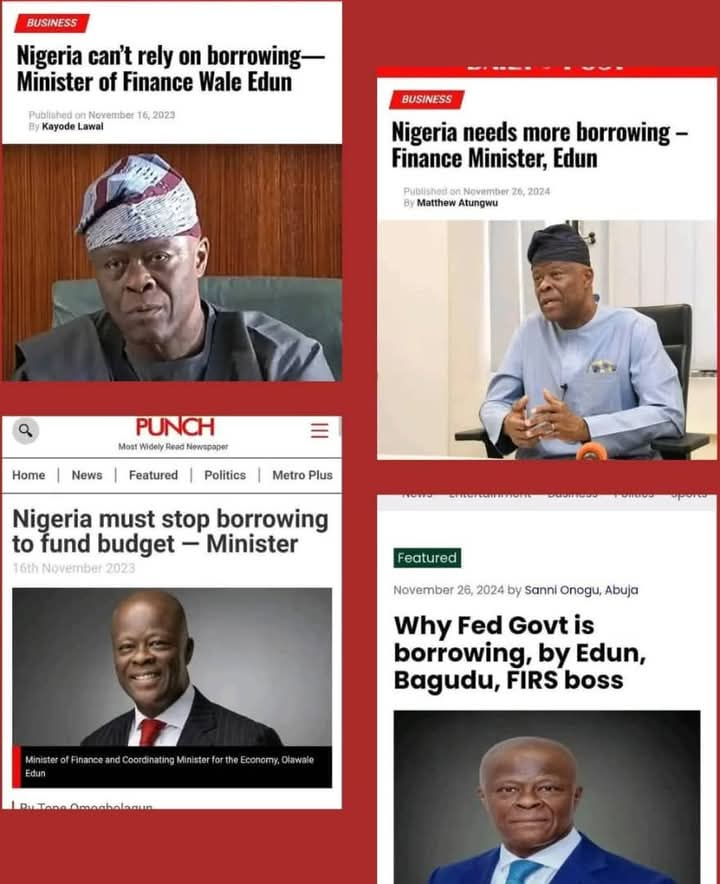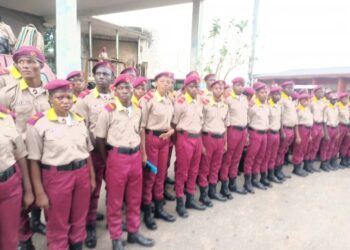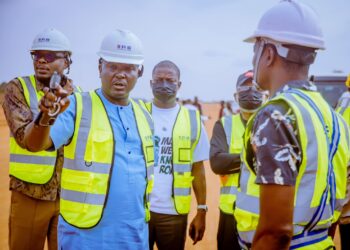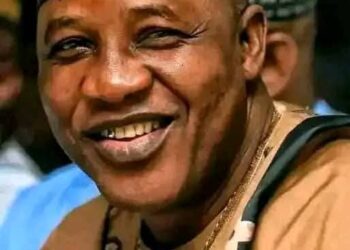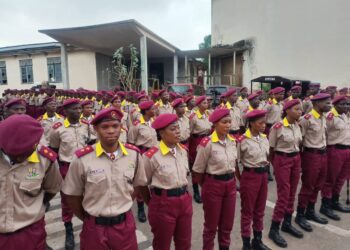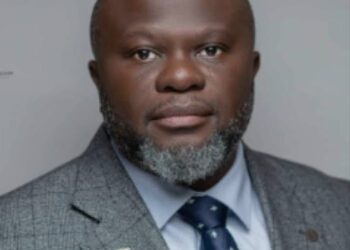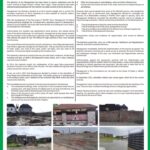In a land once draped in promise, where the sun of democracy was supposed to warm the backs of the common people, there now resides a cold, cruel wind of despair. Nigeria, under the self-proclaimed architect of “renewed hope,” President Bola Ahmed Tinubu, is today navigating blindly through the eye of a socio-economic hurricane, leaving her citizens bruised, battered, and bewildered.
When a leader ascends to power on the back of popular expectations but descends into the abyss of disconnected governance, the result is what we are currently living, a national nightmare wrapped in official rhetoric.
In the bustling city of Akure, Ondo State, the agony of Nigeria’s economic misdirection is not just a tale of statistics; it is a lived experience. One prominent politician-cum-entrepreneur, who once flew the flag of economic empowerment and political engagement with pride, now fights to keep the doors of his hospitality businesses open.
With branches across Abuja, Abeokuta, and parts of Ondo, his establishments once bustled with guests, from civil servants seeking brief repose to mid-level business travelers. Today, those rooms are empty, corridors echo with silence, and generators guzzle diesel that now sells between ₦1,200 to ₦1,400 per litre.
“I spend over ₦2.5 million monthly just on power and maintenance. The guests aren’t coming, and the ones that do, can’t pay what we used to charge,” he confesses. “Everything has gone up, laundry, food, staff wages, but customers now come with old prices in their heads. You’re either forced to operate at a loss or close down entirely.”
This is not just a business owner talking, it is a former local political leader who once promised employment and empowerment to his constituents. Today, he is downsising. Over 30 staff members have been laid off in the last three months. The dreams he once sold during campaigns have collided with the harshness of Nigeria’s economic reality.
This is Akure, but it echoes in Abeokuta, in Asaba, in Ado-Ekiti—and beyond.
The story is even more chilling in the heartland of Nigeria’s agricultural zones.
In Benue State, the once-plentiful yam markets of Gboko and Otukpo are shadows of their former selves. Over 70 farming communities have been displaced in the past year alone. Bandits and herdsmen have turned farmland into killing fields. The rural farmers, who once fed this nation, now live in makeshift IDP camps. In April, more than 45 villagers were massacred in one coordinated attack in Apa Local Government.
Borno State, though claimed to be “stabilising” by federal authorities, remains a terror zone. Eleven farmers were slaughtered in Gwoza while returning from their fields. Women are raped, children abducted, and families forced to choose between feeding their families and facing death.
In Katsina and Zamfara, insecurity is more than a headline, it’s a lifestyle. Farmers are made to pay bandit “levies” to plant crops, some as high as ₦50,000 per hectare, and still, they get attacked. “It’s like doing business with the devil,” one local said. “You pay, you plant, and you pray they don’t return.”
And when they do return, they do not just take crops, they take lives.
Let’s descend from policy-speak and enter the home of an average Nigerian worker in Delta, Edo, Ekiti, Ogun, Lagos, Kwara, Kogi, Kaduna, or Yobe, earning the proposed ₦70,000 minimum wage.
Monthly Budget Breakdown (2025 figures):
Rent (urban/suburban 1-bedroom flat): ₦240,000
Feeding for a family of 4 (basic meals): ₦4,000/day = ₦120,000
Transportation (public commute): ₦1,200/day = ₦36,000/month
Electricity bill (prepaid): ₦15,000
School expenses for two children (levies & books): ₦10,000/month
Medical care (1 visit + medication): ₦10,000/month
Miscellaneous/Toiletries/Clothing: ₦50,000
TOTAL: ₦271,000
Now compare this to the ₦70,000 wage. The deficit is ₦201,000 every month, and this does not include savings, emergencies, or debt repayment. How does one raise a child, maintain dignity, or plan for tomorrow on a wage that only covers half of today’s needs?
In Lagos, workers share rooms in slums, drink sachet water, and feed on hope and hunger. In Kogi, public servants borrow to survive. In Kaduna, some workers have abandoned their homes to relocate to villages where the cost of living is slightly lower but where insecurity is higher.
This is a regime where contradictions are crowned and logic is lynched.
In November 2023, Nigeria’s Minister of Finance thundered: “We can no longer depend on borrowing.” A bold declaration. By mid-2024, the same government had borrowed an additional $2.5 billion.
And let us not forget when that same Minister—then in opposition—accused the previous administration of running the country on “borrowing steroids” and promised that the APC, if elected, would reverse the trend. Today, not only is borrowing on steroids—it is on crack cocaine.
Fuel subsidies were declared “gone forever,” only to quietly reappear in sleight-of-hand accounting. The naira was floated “for transparency,” but soon manipulated “for stability.” Policies come like whirlwinds; their effects linger like hurricanes.
As for Tinubu himself, the archives do not forget. As a vocal opposition leader, he railed against bloated government spending, called for true federalism, and accused then-President Jonathan of leading a government of economic sabotage. He claimed then that if fuel subsidy were removed, Nigerians must feel the immediate benefits. Today, under his watch, subsidy is gone—yet fuel prices are up, inflation is ravenous, and economic benefits remain a myth.
He once said, “Any government that cannot provide for its people has lost the legitimacy to govern.” Yet, today, under his reign, that very legitimacy is sinking in quicksand.
As the masses groan, the ruling class gorges:
₦58 billion for bulletproof SUVs for lawmakers.
₦15 billion for a presidential yacht.
₦21 billion for the renovation of the Vice President’s residence.
₦10,000 only as palliatives for the poor.
It is a comedy of cruelty, except no one is laughing.
As Jean-Jacques Rousseau warned, “When the people shall have nothing more to eat, they will eat the rich.”
And yet, those in power behave like royalty. They forget history. The fall of Nero, the guillotines of Paris, the riots of Tunisia, the collapse of Venezuela, none began with fireworks but with frustration.
Pearl Bailey once said, “Hungry people cannot be good at learning or producing anything, except perhaps violence.” Nigeria is already simmering. Violence is not always physical, it manifests in crime, depression, and apathy. A country that crushes its middle class and ridicules its poor is a country marinating in chaos.
The time for polite silence is over. From Akure’s empty hotels to Zamfara’s bloody fields, from Lagos slums to Makurdi’s abandoned farmlands, the signs are clear: This country is not working.
President Tinubu must retrace his steps. He must abandon the politics of delusion and embrace governance with humility. Nigeria does not need more speeches; it needs sincerity, security, and sanity.
As things stand today, hope has become an endangered species. But as long as Nigerians still draw breath, resistance remains possible. Civic awareness must be rekindled. Demands must rise. Complacency is complicity.
If this is the “renewed hope,” then may the old disappointment be returned, with apologies.
“The most potent weapon in the hands of the oppressor is the mind of the oppressed.” – Steve Biko
Let Nigerians reclaim their minds. Let them demand more. Because silence will not save us, only action will.
Aare Amerijoye DOT.B.
Director General
The Narrative Force.

